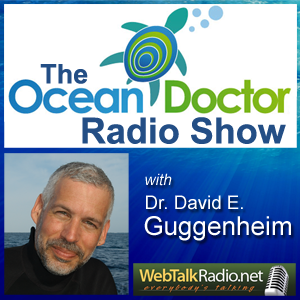Kraken: Up Close and Very Personal With the Giant Squid
 |
February 28, 2011: Few animals provoke the imagination and wonder of the sea like the squid. The giant squid is thought to have been the basis of the myriad of sea monster tales that have been spun over the centuries. And while we now know more about these animals than ever before, there’s still an incredible amount of mystery remaining to be unveiled. The book is ?Kraken: The Curious, Exciting and Slightly Disturbing Science of Squid? and its author and our guest today, Wendy Williams, award-winning writer and journalist. Also: First of a two-part look at a newly-issued report by World Resources Institute, ?Reefs at Risk Revisited? a report that history may well show is the most important report about the oceans to be released this century. It’s more than a wakeup call – it’s truly our last call to take action to save coral reefs.
The Ocean Doctor airs weekly on WebTalkRadio.net. Want to listen on your iPod, iPhone or mp3 player? Download the mp3 file or subscribe on iTunes and don’t miss a single episode. See the complete list of episodes.
Follow The Ocean Doctor on Twitter — Become a Fan on Facebook!
Submit a question and I’ll try to answer it on the air. Even better, record your question or comment on our special message line and I might play it on the air. Call: (805) 619-9194. You can also leave questions and comments for this episode below.
Like the show? Learn how to become a sponsor. Read more
Podcast: Play in new window | Download

 Millions of barrels of oil spewed into the sea after a BP deepwater well ruptured in April 2010.
Millions of barrels of oil spewed into the sea after a BP deepwater well ruptured in April 2010. Clashes have been dramatic – enough to cause a U-turn?
Clashes have been dramatic – enough to cause a U-turn?